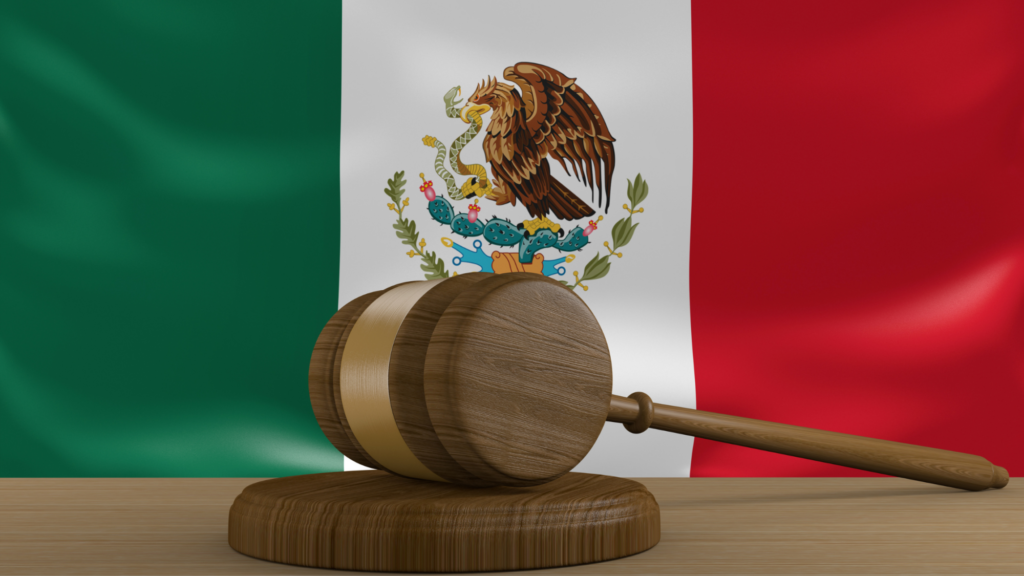In the past decade, surrogacy has emerged as a beacon of hope for many individuals and couples desiring to have children. However, the legal dynamics surrounding this process have been a matter of contention in numerous countries, with varying degrees of acceptance and regulation. A significant change occurred in Mexico’s approach to surrogacy in 2021. Let’s dive deeper into the state of surrogacy in Mexico.
The Supreme Court’s Landmark Decision on Surrogacy
In June 2021, Mexico’s Supreme Court dramatically altered the surrogacy landscape by declaring gestational surrogacy a protected medical procedure under the right to form a family encompassed in Article 4 of the Mexican Constitution which states, “Everyone has the right to decide freely, responsibly and in an informed manner on the number and spacing of his or her children.” This decision encompassed three pivotal points:
- Surrogacy as a Protected Medical Procedure: The court recognized the right to form a family as a fundamental Human Right. As such, everyone should have equal access to medical techniques like IVF and gestational surrogacy, and individual states cannot ban these techniques.
- Recognition of Intended Parents: The court determined a child’s parentage based on the “procreational will” rather than merely genetics or circumstances of biology. A legal Surrogacy Contract validates this will, ensuring that children born through these agreements are always legally recognized as the offspring of the intended parents.
- Universal Access to Surrogacy: The court asserted that surrogacy in Mexico must be universally available, irrespective of race, nationality, religion, gender, marital status, or sexual preference.
Following this decision, no Mexican state can prohibit surrogacy. However, some states have been hesitant to adopt the court’s directives fully, and as a result, surrogacy remains more accessible in specific regions.
LGBT Rights and Surrogacy in Mexico
Following the 2021 Supreme Court decision, surrogacy has been deemed a universally accessible right, regardless of gender, marital status, or sexual preference. This judgment is particularly significant for LGBT individuals and couples, as it guarantees their right to form families through surrogacy without any discrimination. This is a testament to Mexico’s commitment to upholding the principle of equality in family formation.
The Law in Mexico
Mexico operates under a civil law system, which is rooted in the Roman-Germanic tradition. This system is characterized by its reliance on written laws and statutes, in contrast to common law systems that prioritize judicial precedents. Here’s an overview of how civil law works in Mexico:
- Codified System: The primary feature of a civil law system is its reliance on comprehensive legal codes that cover broad areas of law. These codes are intended to serve as the primary sources of law, detailing the entirety of rules on particular subjects.
- Constitution: The supreme law of Mexico is the Constitution of the United Mexican States (Constitución Política de los Estados Unidos Mexicanos), first promulgated in 1917. It sets the foundation for all other laws in the country and provides the basic rights and duties of citizens, the organization of the state, and the principles governing its operations.
- Judiciary’s Role: In Mexico’s civil law system, the role of the judiciary is to interpret and apply the written laws rather than to establish legal principles. Courts are not bound by precedent in the same way they are in common law jurisdictions, although previous decisions can be consulted for guidance.
- Civil Code: One of the most important legal documents in Mexico is the Federal Civil Code (Código Civil Federal). This code governs areas such as personal rights, obligations, contracts, torts, and property. Each of Mexico’s states also has its own civil code, but these are largely modeled after the federal code.
- Procedure: Mexico’s legal procedures in civil matters are inquisitorial rather than adversarial. This means that judges play a more active role in investigating the facts of a case. The process is mainly written, with judges reviewing documents and evidence to make decisions.
- Legal Professionals: Mexico’s legal system distinguishes between several legal professionals:
- Notarios Públicos (Notaries): They are specialized legal professionals responsible for drafting, witnessing, and authenticating certain types of documents. Their role is more significant and specialized than the role of notaries in many common law countries.
- Abogados: General legal practitioners who represent clients in legal matters and provide advice.
- Judges and Magistrates: They play an essential role in the administration of justice, overseeing court proceedings, and rendering judgments.
- Interplay with International Law: Mexico is a signatory to various international treaties and conventions. The Constitution specifies that international treaties to which Mexico is a party become part of the domestic law, and the country is obligated to fulfill these treaty provisions.
The evolution of surrogacy laws in Mexico, especially following the landmark 2021 Supreme Court decision, is a testament to the country’s progression towards upholding individual rights and ensuring that family formation remains a universally accessible choice. By recognizing surrogacy as a protected medical procedure, the Mexican legal framework has taken a significant step in safeguarding the desires of individuals and couples, including those from the LGBT community, to experience the joy of parenthood. Mexico’s unique civil law system, characterized by its codified approach and rooted in the Roman-Germanic tradition, serves as a robust foundation for such monumental legal decisions. Additionally, the nation’s commitment to international law further reinforces its dedication to human rights and equality. However, as with any significant change, there are challenges in implementation, and it is crucial to monitor how individual states in Mexico adapt to these new directives. As the surrogacy landscape continues to evolve globally, Mexico’s proactive stance offers an insightful case study for other countries contemplating similar reforms.


